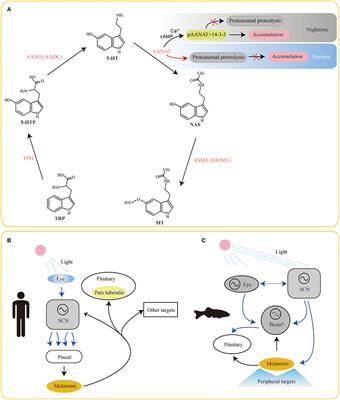BRIEF RESEARCH REPORT
Published on 11 Sep 2020
Food Anticipatory Activity on Circadian Time Scales Is Not Dependent on Central Serotonin: Evidence From Tryptophan Hydroxylase-2 and Serotonin Transporter Knockout Mice

doi 10.3389/fnmol.2020.534238
- 2,941 views
- 7 citations







